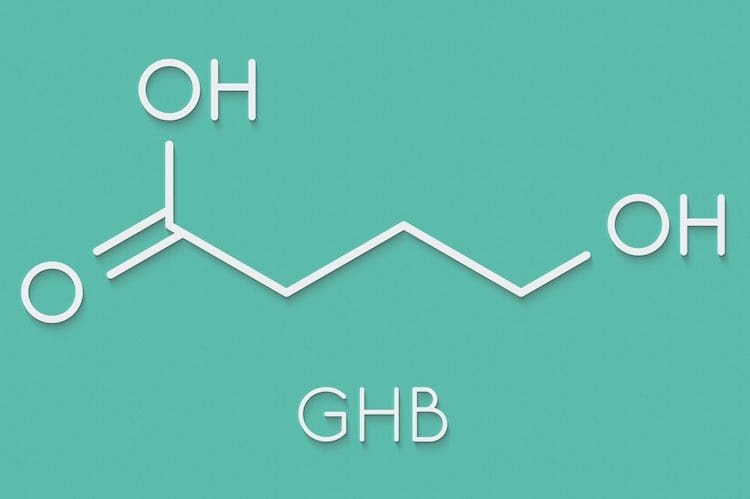What is GHB
GHB (gamma hydroxybutyrate) is a depressant drug. Depressant drugs do not necessarily make a person feel depressed. They slow down the activity of the central nervous system and the messages going between the brain and the body. Other depressants include alcohol, benzodiazepines, cannabis and heroin.
GHB occurs naturally in the brain, but it was first manufactured in the 1960s. It has been used as a general anaesthetic, but was withdrawn from use in most countries—including Australia—because of unwanted side effects.
Other names
G, fantasy, grievous bodily harm or GBH, liquid ecstasy, liquid E, liquid X, salty water, Georgia Home Boy, soap, scoop, cherry meth and blue nitro.
What does it look like?
GHB commonly comes as a colourless, odourless, bitter or salty tasting liquid, usually sold in small bottles or vials. It also comes as a bright blue liquid (sometimes called “blue nitro”) and less commonly as a crystal powder.
How and why is it used?
GHB is generally swallowed, although a small number of people inject it.
In the 1980s GHB was marketed as a dietary supplement for body builders. GHB has also been used as a treatment for the sleep disorder narcolepsy and in the treatment of alcohol dependence.
GHB has been used to facilitate sexual assault. It can easily be slipped into a drink without the victim’s knowledge, and can cause drowsiness, sleep and short-term memory loss. This means that victims may not be able to resist or recall a sexual assault.
Some people use GHB to help with the symptoms of the “comedown” after using stimulants like amphetamines or ecstasy. Others take it because it makes them relax, feel more sociable and lose their inhibitions.
Effects of GHB
Effects vary from person to person, and may be immediate or long-term effects. They will depend on the size, weight and health of the person taking GHB, whether they are used to taking the drug, whether other drugs are present in their body, and of course, the amount taken.
It can be very hard to judge the amount taken, as the quality and strength of drugs can vary greatly from one batch to another.
Using GHB carries a high risk of overdose due to the small difference between the amount required to produce a “high” and that which causes overdose.
There is no safe level of drug use. Use of any drug always carries some risk—even medications can produce unwanted side effects. It is important to be careful when taking any type of drug.
Immediate effects
The effects of GHB may start to be felt within 15–20 minutes and last for approximately 3 to 4 hours. Some of the effects that may be experienced after taking GHB include:
| Low to moderate doses | Higher doses |
Withdrawal
|
A high dose of GHB can cause a person to overdose. This means that a person has taken more GHB than their body can cope with. The effects can include:
|
Long-term effects
At this stage, little is known about the long-term effects of GHB use, but we do know that it can be highly addictive.
People who use GHB regularly can develop dependence and tolerance to it, which means they need to take larger amounts of GHB to get the same effect.
Other effects of GHB use
Taking GHB with other drugs
If GHB is taken with other depressant drugs (such as alcohol or benzodiazepines), the chance of overdose is increased.
If GHB is taken with stimulant drugs (such as amphetamines or ecstasy), the body will be put under a lot of stress as it tries to deal with the competing effects.
Using GHB to help with the symptoms of the “comedown” after using stimulants can lead to a cycle of dependence on both drugs.
Pregnancy and breastfeeding
Read about the effects of drugs on pregnancy and breastfeeding.
Driving
Read about the effects of drugs on driving.
Tolerance and dependence
There is evidence that after prolonged use, GHB is highly addictive. People who use GHB regularly can develop dependence and tolerance to it, which means they need to take larger amounts of GHB to get the same effect.
Dependence on GHB can be psychological, physical, or both. People who are dependent on GHB find that using the drug becomes far more important than other activities in their life. They crave the drug and find it very difficult to stop using it.
People who are psychologically dependent on GHB may find they feel an urge to use it when they are in specific surroundings or socialising with friends.
Physical dependence occurs when a person’s body adapts to GHB and gets used to functioning with the GHB present.
Withdrawal and treatment
Getting help: Treatment
In Australia, there are many different types of treatments for drug problems. Some aim to help a person to stop using a drug, while others aim to reduce the risks and harm related to their drug use. Find out more about treatment.
What to do if you are concerned about someone’s drug use
If you are concerned about someone’s drug use, there is help available. Contact the alcohol and drug information service in your state or territory.
What to do in a crisis
Always call triple zero (000) if a drug overdose is known or suspected—and remember that paramedics are not obliged to involve the police.
If someone overdoses or has an adverse reaction while using GHB, it is very important that they receive professional help as soon as possible. A quick response can save their life.
For more information, please click on the Alcohol and Drug Foundation (formerly Australian Drug Foundation’s) link below:


